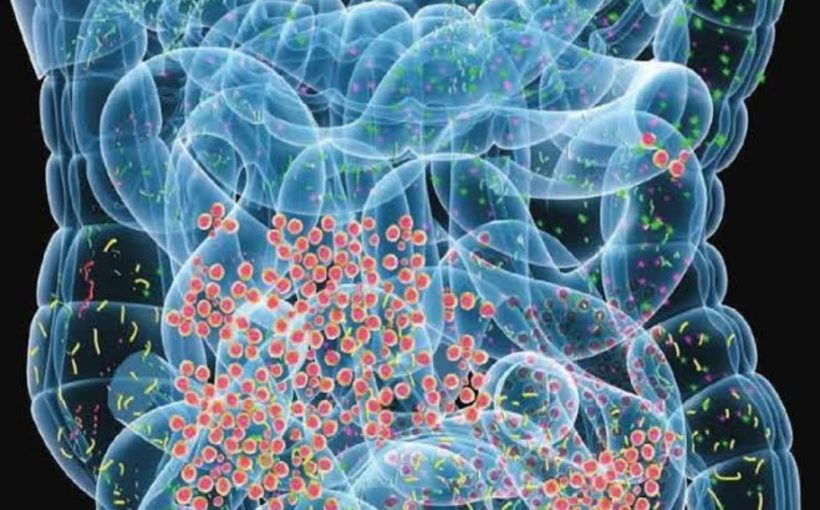Folate, magnesium, and dairy products may all help stave off bowel cancer, but there’s no evidence that garlic or onions, fish, tea or coffee protect against the disease, finds an overarching analysis of published pooled data analyses in the journal Gut.
In the US alone around 1 in every 20 people is likely to develop bowel cancer at some point during their lifetime. And worldwide, more than 2.2 million new cases and 1.1 million deaths from the disease are predicted every year by 2030.
While deaths from the disease have been falling in most developed countries, the numbers of new cases have been rising in some, including in Canada, the UK, and the Netherlands.
Screening for the disease can pick up the disease at an early treatable stage, but take-up varies considerably from country to country. And as it takes more than 15 years for bowel cancer to develop, a healthy lifestyle likely has a key role in helping to halt or stop its progress altogether, say the researchers.
They therefore trawled relevant research databases for published systematic reviews and meta-analyses (pooled data analyses) of clinical trials and observational studies assessing the impact of dietary and medicinal factors on bowel cancer risk.
The medicinal factors included: aspirin; non-steroidal anti-inflammatory drugs (NSAIDs), such as paracetamol; and statins.
The dietary factors included: vitamins or supplements (magnesium, calcium, folic acid, vitamin A, B, C, E, D, β-carotene and selenium); coffee; tea; fish and omega 3 fatty acids; dairy products; fibre; fruit and vegetables; meat; and alcohol.
They included relevant studies published in French or English between September 1980 and June 2019, but excluded those involving people at high risk of developing bowel cancer. Some 80 articles out of a total of 343 were included in the overarching (umbrella) analysis of pooled data analyses.
The results showed that aspirin is likely protective against bowel cancer, lowering the risk by between 14% and 29% at doses as low as 75 mg/day, with a dose-response effect reported up to 325 mg/day.
NSAID use for up to 5 years was associated with a significant (26% to 43%) fall in the incidence of bowel cancer.
Magnesium intake of at least 255 mg/day was associated with a 23% lower risk compared with the lowest intake, and high intake of folic acid was associated with a 12-15% lower risk, although it wasn’t possible to pinpoint a threshold dose from the available data.
Similarly, eating dairy products was associated with 13% to 19% lower risk of the disease. But the small number of available meta-analyses, and the many different research outcomes and variety of dairy products included make it difficult to draw firm conclusions about the quantities required to ward off the disease, caution the researchers.
Fibre intake was associated with a 22%-43% lower risk, while fruit/vegetable intake was associated with up to a 52% lower risk, with added benefit for every additional 100 g/day increase in intake.
Dietary soy intake was associated with a modest, but significant, fall (8-15%) in risk.
But there was no evidence that vitamins E, C, or multivitamins were protective. Similarly, there was no evidence that β-carotene or selenium helped stave off the disease.
The data were weak or equivocal on the impact of tea; garlic or onions; vitamin D either alone or combined with calcium; coffee and caffeine; fish and omega 3; and inconsistent on the protective effect of vitamin A and the B vitamins.
A modest protective effect was found in observational studies for high calcium intake, but a meta-analysis of clinical trial data found no protective effect, and even an increased risk.
Similarly, although meta-analyses of observational studies suggest that statins may lower cancer risk, no positive effect was noted in meta-analyses of clinical trial data.
Most of the available meta-analyses of observational studies reported an increased risk of between 12% and 21% for meat, particularly red and processed meat. Dose-effect studies reported a 10-30% increased risk for each additional 100 g/day of red meat eaten.
Alcohol was associated with a significantly increased risk. The higher the intake, the greater the risk. This was evident even at the lowest level of consumption studied: 1-2 drinks/day.
The researchers caution that the level of evidence is low or very low in most cases, mainly due to wide differences in study design, end points, numbers of participants, etc. And they were unable to define “an optimal dose and duration of exposure/intake for any of the products, even in the case of low dose aspirin and other compounds that have been extensively assessed,” they point out.
Nevertheless, they suggest that their findings could help clinicians advise patients on the best diet to lower bowel cancer risk and guide the direction of future research.
British Medical Journal


